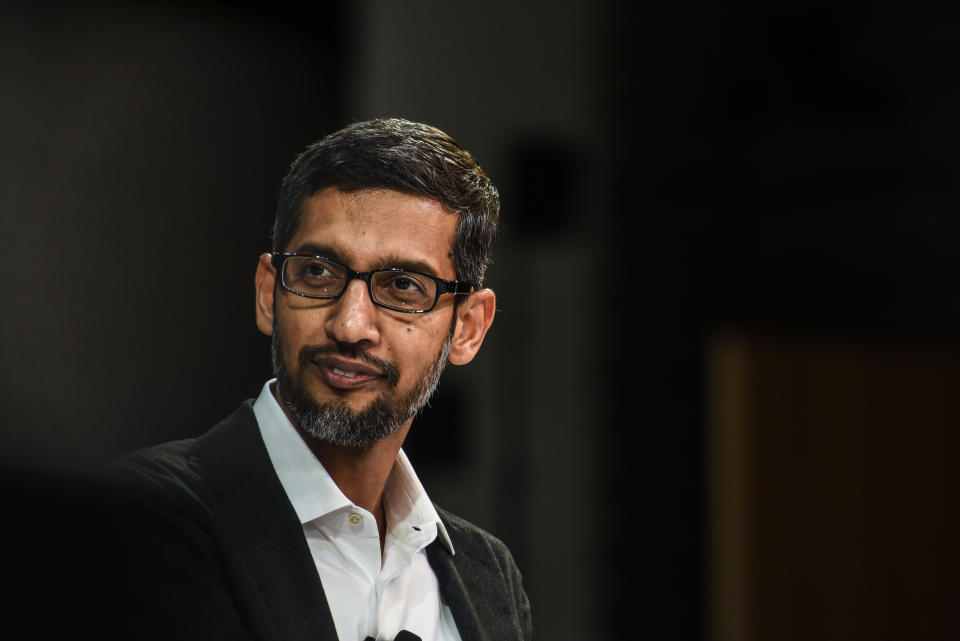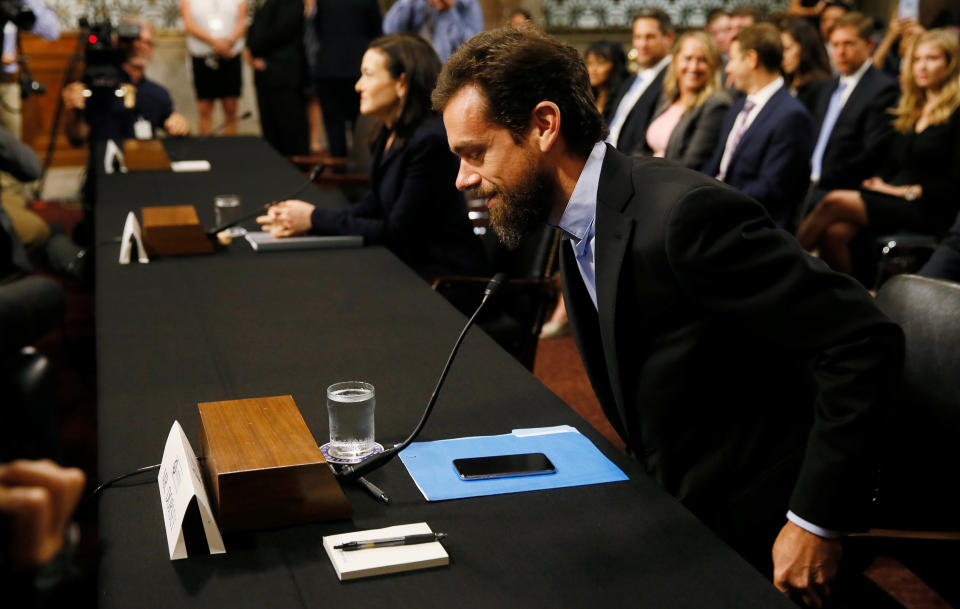Congress will grill Google's CEO this week — here's what to expect

When big tech executives were invited to testify before Congress in September, Google (GOOG, GOOGL) opted to be represented by an empty seat rather than send its CEO, Sundar Pichai.
That will change on Tuesday, Dec. 11, when Pichai will testify at a hearing all about Google before the House Judiciary Committee, called “Transparency & Accountability: Examining Google and its Data Collection, Use and Filtering Practices.”
That hearing will require transparency about things the company prefers to keep opaque, starting with how it ranks search results, and Pichai is unlikely to appreciate that line of questioning. But if the committee’s members put on the same grandstanding exercise in victimology that we saw in a July questioning of executives from Facebook (FB), Google and Twitter (TWTR), spectators shouldn’t be happy either.
So while Tuesday’s grilling of Pichai might leave us with a better understanding of how Google decides what it thinks we want to see, it could prove to be yet another Silicon Valley vs. Washington contest that ends in a 0-0 tie.
A bad precedent
The subject of how Google’s algorithms decide which pages and news stories match our interests certainly deserves cross-examination. The company has repeatedly had to apologize for serving up conspiracy theorists among news results and YouTube recommendations and has struggled to stop various sorts of ad fraud.

But the last time the House Judiciary Committee tackled content-filtering practices, the results were dreadful. Most of the Republican members used up their airtime to lob unfounded accusations that Facebook, Google, and Twitter were mean to their team. For instance, Rep. Steven King (R.-Louisiana) complained that Facebook was sending less traffic to a fake news mill called the Gateway Pundit, while Rep. Lamar Smith (R.-Texas) offered an evidence-free claim that Google blocked searches for Jesus, Chick-fil-A, and Catholicism.
The one committee member to defend these companies’ free-market rights to run their own platforms was Rep. Ted Lieu (D.-California).
“My fellow conservatives need to be more careful about jumping to conclusions about bias, particularly when there are more mundane explanations available if a little energy is spent trying to understand how the technology works,” said Zach Graves, head of policy at the free-market group Lincoln Network.
Some of the committee’s recent ventures exploring social media had “more of a circus than serious conversation,” Graves added.
At least Google is sending its CEO instead of underlings who don’t set policy — as it did for hearings in early September, a decision that did not go well for the company.
Good questions to ask
Instead of obsessing over search results, committee members might do better to focus on content filtering as seen in YouTube’s recommendation engine — which seems to optimize keeping people’s attention over the quality of what it puts in front of people’s eyeballs. Google’s attempts to filter out the worst content or at least exclude it from advertising income, meanwhile, have sometimes trapped content as innocent as a clip of a giant American flag at a football game.
“We’ve over optimized a lot of these algorithms without thinking about all the factors,” said Heather West, senior policy manager at Mozilla, the nonprofit behind the Firefox browser that competes with Google’s Chrome. “If you stick a really smart engineer on a problem — do this as well as possible — they’re going to do it.”
But, she added: “If they optimize for one thing, chances are they’re going to leave something out.”
Graves, however, worried that discussions over Google’s role in curbing extremist content would lead to more attacks on Section 230 of the 1996 Communications Decency Act. That’s helped social media flourish by protecting sites from liability for most things their users post, but it’s also been a target for companies and organizations upset at social networks’ responses to such issues as copyright infringement and sex trafficking.
Google has also earned Congressional scrutiny over its experimentation with building a censored version of its search engine for the Chinese market that it left in 2010—a project that former employees have denounced as wrong and which current Googlers have begun protesting.
“The Chinese search engine is likely to come up,” said Mike Godwin, a fellow with the R Street Institute, a Washington think tank. He cited recent reports that Google shut out some of its own privacy experts from this effort —“trying to sort of do an end run around their own internal culture” —as reason to ask what Google’s former “Don’t be evil” motto ever met.
The existence of this so-called Project Dragonfly censored search, Godwin added, also invites hostile questions about how Google’s news search runs: “Google in effect has demonstrated that it can skew results.”
Expect a continued failure to communicate
We should also hope that committee members take time to grill Google about its response to the Google+ data breach and the consequences it’s observed of complying with the European Union’s General Data Protection Regulation.
But this hearing will probably wind up demonstrating once again the gulf between a tech industry that prides itself on being data-driven and elected officials who have to respond to a fair amount of confusion and anxiety among citizens whom the tech industry prefers to call “users.”
Or as Godwin put it: “The fact is, members of Congress don’t like statistics. They like stories.”
Email Rob at [email protected]; follow him on Twitter at @robpegoraro.
